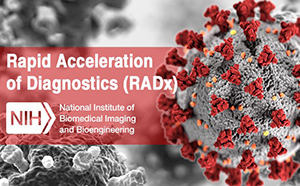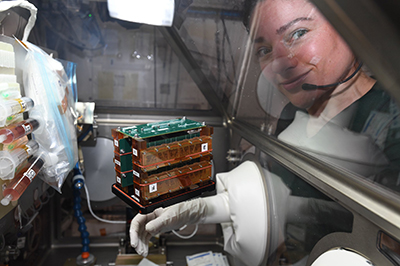Hereditary angioedema (HAE) not only causes swelling and discomfort; It also brings uncertainty to everyday life. This rare genetic condition causes sudden attacks of swelling that are unpredictable, uncomfortable, and sometimes even life-threatening when they affect the airways. The unpredictability of HAE can lead to stress, and many experts suggest that stress or anxiety is a contributing factor to HAE attacks. “Stress can initiate episodes and create a vicious cycle of anxiety and new attacks, negatively affecting quality of life,” says Yael Gernez, MD, PhD, associate clinical professor of pediatrics in immunology and allergy at Stanford Medicine. Observational data shows that periods of increased stress, such as during the COVID-19 pandemic, are linked to a higher frequency of attacks, says Dr. Gernez. So, although there is no evidence that stress directly causes HAE attacks, developing strategies to deal with everyday and HAE-related stress can help you feel less stressed and more in control. How does stress lead to angioedema (swelling)? How Stress Leads to Bloating It begins when emotional or mental stress activates the body’s alarm system, similar to how it would react to physical danger, which can set off a chain reaction: stress chemicals are released. Stress hormones, such as cortisol and adrenaline, are released in organs throughout the body and cause inflammation. The blood vessels become more sensitive. Stress can cause small blood vessels to be permeable or “leaky,” which can set the stage for inflammation. The body produces more bradykinin. This is the chemical that causes swelling in HAE, and stress can increase its effects. C1 inhibitors can’t keep up. This protein, which normally helps control inflammation, is low or does not work properly in people with HAE, and stress makes it even more difficult to control swelling. A HAE outbreak begins. Swelling develops in the skin, abdomen, or airways. The attack causes psychological stress. The pain and discomfort caused by swelling adds more stress, which can increase the likelihood of future attacks. What Makes HAE Stressful One of the most difficult parts of HAE is that it is unpredictable. Attacks can appear suddenly, without clear warning. That uncertainty creates a constant undercurrent of worry. The swelling caused by HAE can lead to stress, pain, and even a life-threatening health crisis. Visible swelling in the eyelids, lips, hands, and genitals can cause temporary disfigurement and social embarrassment. Swelling of the gastrointestinal (GI) tract can cause nausea, vomiting, diarrhea, and abdominal pain. Swelling of the mouth, throat, tongue, and airways can cause problems swallowing and even breathing. When breathing is restricted by swelling, it is a life-threatening emergency and needs immediate medical attention. and living with the uncertainty of when the next attack will occur is also stressful: a triple whammy. In-the-moment tools can help calm your body before it becomes a trigger. Some stress-busting methods you can try include: Deep breathing Simple techniques like the 4-7-8 method (inhale for 4 seconds, hold for 7, exhale for 8) can reduce tension quickly and can help short-circuit the stress response. Gentle stretching or yoga Moving your body in a slow, controlled way can relieve muscle tension and divert your attention from worries. Moments of Mindfulness Even a few minutes of focusing on your breathing or observing your surroundings without judgment can help reduce the immediate impact of stress. These techniques will not prevent all attacks, but they can be part of a toolkit to stabilize yourself during stressful times. Long-Term Stress Management Strategies Long-Term Stress Management While it’s important to have the tools to deal with stress in the moment, long-term stress management is essential for people with HAE, Gernez says. She recommends the following habits to reduce stress in your daily life: Practice mindfulness or meditation regularly. Mindfulness and relaxation practices have been shown to reduce stress and could theoretically reduce the frequency of attacks in people with HAE.e60dc2a1-f33c-4a05-9b50-8e3e8e597629726c06da-539d-4b9b-b8d9-f70d8967014b Join a group of support. Connecting with others living with HAE can ease feelings of isolation and provide practical advice for coping. Support groups can also give you a safe space to talk about the emotional side of managing a rare disease. Try psychotherapy. Professional counseling may be especially helpful if you suffer from anxiety, depression, or the additional emotional burden of HAE. Therapists can offer you coping tools tailored to your life. Stay physically active. Exercise is a natural stress reliever and can help improve sleep and mood. Gernez notes that physical activity should be tailored to your individual needs, with input from your healthcare provider. Prioritize sleep. Poor sleep can worsen stress and leave you less prepared to handle asthma attacks. Developing a regular sleep routine supports your physical and emotional health. Follow a balanced diet. Nutrition plays a role in stabilizing the body’s response to stress. A diet rich in whole foods, lean proteins, and fruits and vegetables can promote resilience. Identify and address chronic stressors. Often, the biggest sources of stress don’t come out of nowhere. Ongoing problems such as job tension, relationship problems or financial pressures can greatly contribute to chronic stress. Identifying these areas and taking steps to address them can make a significant difference in your long-term health. How to Get Your Doctor’s Help to Reduce Stress How Your Doctor Can Help You You don’t have to manage stress and HAE on your own. Talk to your healthcare provider about steps to take if you feel an attack coming on. Having a plan in place that is ready to execute can go a long way toward easing any anxiety about future episodes. Your provider can also help with: Education and early recognition Work with your provider to recognize the early signs of swelling (especially airway involvement) and know what to do when that happens. Self-administering treatment Learn to give yourself appropriate medication on demand, by injection or infusion if necessary, at the onset of an attack without relying on emergency departments. access “Access to on-demand HAE treatments during stressful situations is crucial for safety,” says Gernez. Conclusion Stress is a well-known trigger of hereditary angioedema, and living with HAE may itself be a major source of stress. Quick relief strategies, such as deep breathing, stretching, or mindfulness, can help calm stress in the moment. Long-term practices, including mindfulness, exercise, good sleep, healthy eating, and psychotherapy, can reduce attacks and improve quality of life. Partnering with your doctor to make a clear treatment plan and having medications ready on demand can ease anxiety and help you feel more in control.
How to manage the stress of hereditary angioedema



